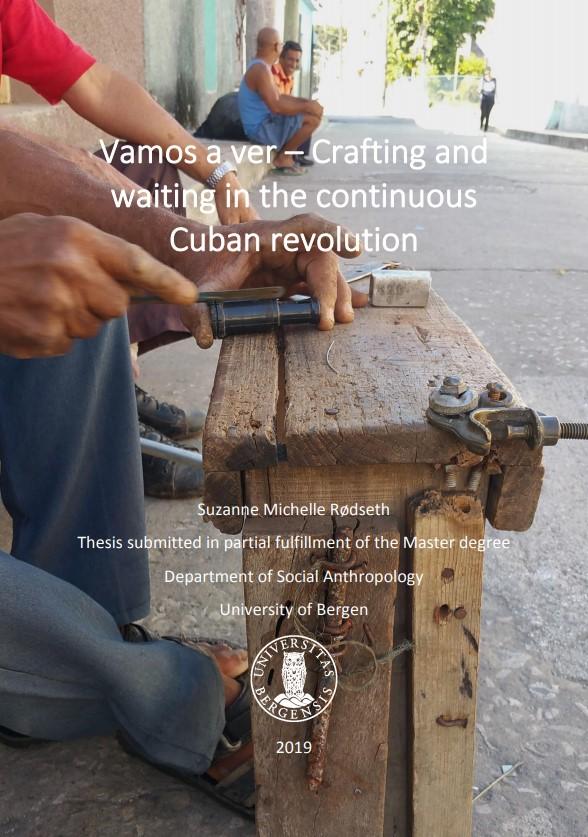Vamos a ver – Crafting and waiting in the continuous Cuban revolution
Main content
Master's thesis submitted at Department of Social Anthropology, autumn 2019.
By: Suzanne Michelle Rødseth
Supervisor: Professor Bjørn Enge Bertelsen
Based on ethnographic material from participant observation in a mid-sized Cuban town the second half of 2016, I seek to understand relationships between resources, knowledge and community. To do that I am deploying theories about materiality and economy. The themes are also interpreted in the context of the days after the death of Fidel Castro. How are the materials and knowledge used in remaking things a resource in a small Cuban community and how is it possible to start crafting a future when salaries are low, materials scarce and education has little economic value? How does the material intimacy tie in to the economic and political pasts, presents and futures in Cuba? The aim of this thesis is to bring light to a specific socio-political situation, in a specific neighborhood in Cuba, from a perspective of the tactile and hands on everyday dealings with sustenance and provisions. It reflects my time spent observing and repairing as an apprentice to a Cuban man repairing umbrellas, ‘the umbrella repairman’, and gives a close description of the materials and knowledge used in remaking things and the material intimacy of improvising. Furthermore, it explores some ways of seeing materials and shaping materials. It describes the work that goes in to finding resources and other solutions when salaries are low, and some values people draw on when education is not paying off. It also attempts to convey the deep frustration from the exhausting process of finding out about, spending time searching for, waiting in line for and just not finding any little thing you need or want. Moreover, the thesis compares ideas about the anthropology of materiality and economics and apply them to different contexts with a critical look at the distribution of material knowledge and the understandings of scarcity and struggles. It gives an account of the days after Fidel Castro died and the material intimacy of sorrow and disappointments. The political pasts, presents and futures met at a crossroad as his urn travelled the same route from Havana to Santiago de Cuba as Fidel had once travelled the other way to celebrate the victory of the revolution decades earlier. The thesis lastly compares the conflicting faith, disbelief and indifference that people reportedly felt in the Soviet Union with what people expressed to me before and after Fidel’s death.
